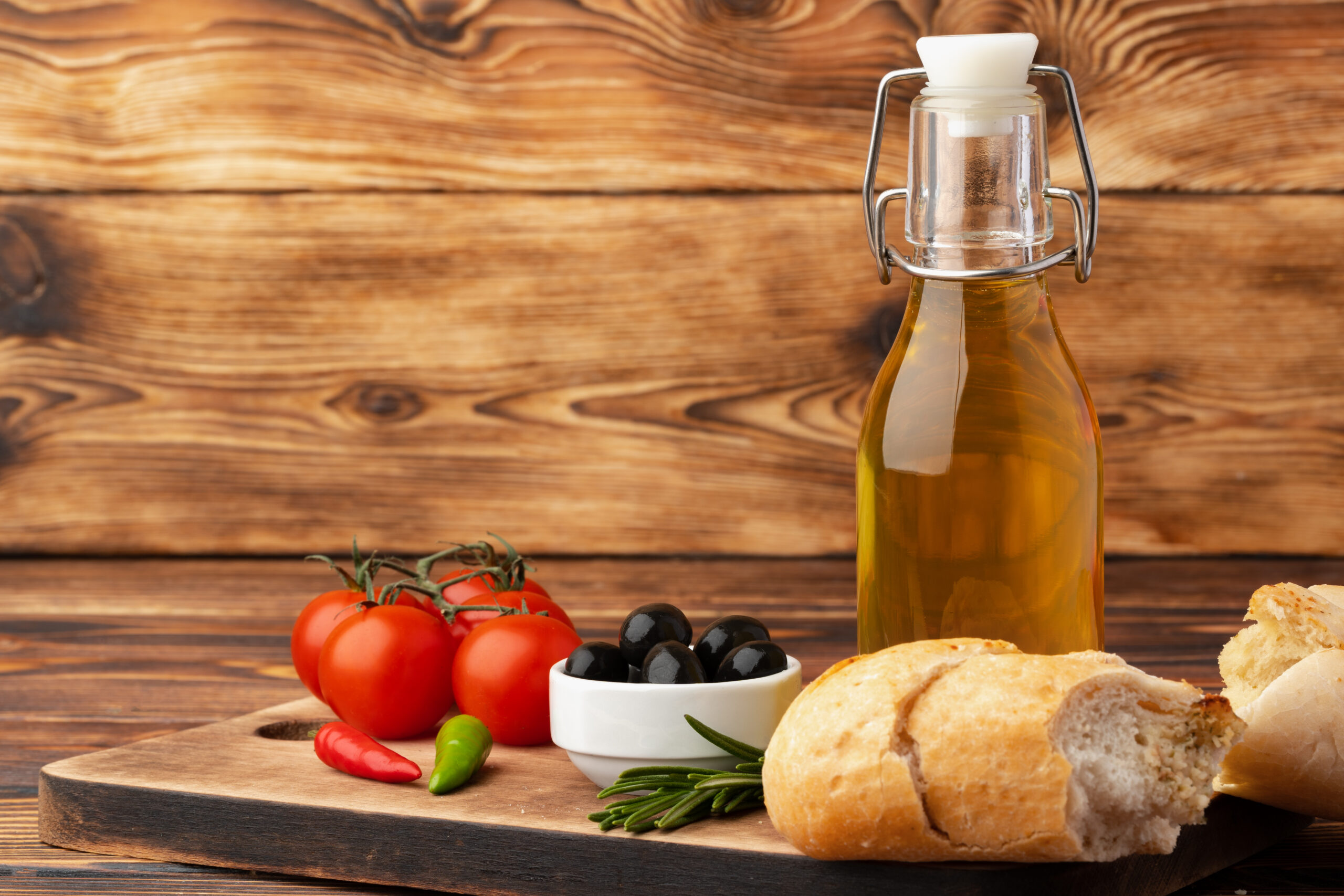Olive oil, particularly extra virgin olive oil (EVOO), is cherished not just as a cooking medium but also as a flavoring agent. With its rich history, nutritional profile, and aromatic complexity, olive oil is a staple in kitchens around the world. But beyond its own flavor, many have noticed that olive oil sometimes seems to “store” or retain the flavors of foods it comes into contact with. This raises an intriguing question: Can olive oil store flavor from food?
To answer this, we need to explore the chemistry of olive oil, the science of flavor absorption, culinary practices, and storage techniques. This article delves into whether olive oil can absorb and retain flavors from food and how this property can be both a benefit and a challenge in cooking and food preservation.
Understanding Olive Oil: Composition and Properties
To understand how olive oil interacts with food flavors, we must first understand its composition.
1. What Is Olive Oil Made Of?
Olive oil is primarily composed of:
-
Monounsaturated fats, especially oleic acid (55-83%)
-
Polyunsaturated fats, like linoleic and linolenic acids
-
Saturated fats, in smaller quantities
-
Minor components such as phenolic compounds, sterols, tocopherols (Vitamin E), and volatile aromatic compounds
These volatile aromatic compounds are particularly important when discussing flavor absorption, as they are chemically reactive and can interact with flavor molecules.
2. Flavor-Carrying Capacity
Fats are excellent carriers of flavor. This is because many flavor molecules are lipophilic, meaning they dissolve more readily in fats than in water. That’s why fatty foods often taste richer — the fat helps carry and release flavor molecules over time.
Can Olive Oil Store Flavor from Food?
The answer is yes, olive oil can and does absorb flavors from other substances. This is both a naturally occurring phenomenon and a technique deliberately used in culinary arts.
1. Infusion Techniques
One of the clearest examples of olive oil absorbing flavor is infusion. Infused olive oils are popular in both commercial and home kitchens. Common infusions include:
-
Garlic-infused olive oil
-
Chili-infused olive oil
-
Herb-infused olive oil (rosemary, basil, thyme)
-
Citrus-infused olive oil (lemon peel, orange zest)
These are made by allowing herbs, spices, or other aromatics to steep in olive oil, transferring their flavor compounds to the oil.
Key takeaway: Olive oil absorbs flavors well when exposed to aromatic compounds, especially fat-soluble ones.
How Does Flavor Absorption Work?
Flavor absorption is a process involving molecular exchange between the food and the oil. Several factors influence the degree to which olive oil stores food flavors:
1. Temperature
Heat increases molecular movement, which facilitates the transfer of flavor compounds into the oil. That’s why warm infusions are faster and why olive oil used in cooking often retains some of the food’s flavor.
2. Duration of Contact
The longer olive oil is in contact with a flavor source, the more flavor it can absorb. This is why oils used in slow-roasted dishes or marinades can taste distinctly of the dish they were part of.
3. Surface Area
The efficiency of taste transfer increases with the amount of the aromatic ingredient’s surface area exposed to the oil. The procedure is sped up by crushing or cutting herbs prior to infusion.
4. Fat-Solubility of Flavor Compounds
Some flavors — like those from garlic, chili, and citrus — have molecules that are soluble in fat, which makes them easily transferable to oil. Water-based flavors (like those in many fruits or vegetables) don’t infuse as effectively.
Can Olive Oil Store Flavor from Cooking?
Yes, but with limitations.
If you sauté garlic in olive oil, you’ll likely notice that the oil retains a garlicky aroma even after the garlic is removed. The same is true when roasting vegetables or meats in olive oil. However, the intensity and longevity of this flavor retention depend on several factors:
-
Cooking Time and Heat Level: Higher heat can degrade both the oil and the flavor compounds, sometimes reducing flavor retention.
-
Strength of the Aromatics: Strong flavors like onion, garlic, anchovy, or spices are more likely to linger in the oil.
-
Oil Quality and Type: EVOO, being less refined and richer in minor compounds, tends to hold onto flavors better than light or refined olive oils.
However, oils used in high-heat applications like deep-frying tend to lose both their own flavors and any absorbed flavors due to thermal degradation.
Real-World Applications: When Flavor Absorption Matters
1. Reusing Oil
Reusing cooking oil is a common practice in many kitchens, but it has flavor implications. Olive oil used to fry fish, for instance, can retain a subtle fishy aroma. When reused to cook another dish, that flavor may transfer — sometimes pleasantly (in dishes like paella), and sometimes undesirably.
2. Seasoned Pans and Dishes
In cast iron or stone cookware seasoned with olive oil, flavors from previous meals can remain and subtly influence future dishes. This is particularly noticeable in traditional cuisines where pots are rarely fully scrubbed clean between uses.
3. Flavor Layering in Recipes
Some recipes intentionally layer flavors using flavored oils. For instance, a stew might begin with garlic-infused olive oil to provide a foundational note throughout the dish.
How Long Can Olive Oil Hold Flavors?
1. Stability of Infused Oils
Infused oils can retain their flavors for weeks to months, depending on the ingredients used and how the oil is stored. However, certain ingredients, especially fresh garlic or herbs, can pose a risk of botulism if stored improperly. For safety, it’s recommended to:
-
Use dried ingredients or acids (like vinegar or lemon juice) in infusions
-
Store infused oils in the refrigerator
-
Use within 1–2 weeks for homemade infusions with fresh ingredients
2. Flavor Fade Over Time
Just as olive oil can absorb flavors, it can also lose them over time. Light, heat, and oxygen degrade both the oil and the infused flavors. EVOO is especially vulnerable because of its high content of antioxidants and volatile aromatic compounds.
Pro tip: Store olive oil in dark, sealed bottles away from heat and light to preserve both its own and absorbed flavors.
Can Olive Oil “Store” Flavors Like a Memory?
Metaphorically, yes. Olive oil can carry flavor memories of what it was used with — a sautéed onion here, a roasted pepper there. These traces, while sometimes subtle, can accumulate or fade depending on how the oil is used and stored.
However, from a scientific perspective, olive oil doesn’t “remember” flavors in a permanent way. It’s a medium that can absorb and release compounds based on physical and chemical interactions, not a static archive.
Culinary Implications: Using Flavor-Absorbing Oil to Your Advantage
1. Building Complex Flavors
By using olive oil that has been gently flavored with previous ingredients, you can add depth to dishes. For example:
-
Reuse oil from roasting tomatoes to make vinaigrette.
-
Use oil from marinated cheeses to finish pasta dishes.
-
Cook vegetables in oil previously used for searing meat to build umami.
2. Creating Signature Oils
Chefs often develop their own infused oils to use as finishing touches. A house rosemary-garlic olive oil, for instance, can become a restaurant’s signature drizzle.
3. Avoiding Cross-Flavoring
Sometimes, unintentional flavor absorption can be a problem — for example, when storing olive oil near pungent items like onions or truffles. Always store olive oil tightly sealed to avoid absorbing ambient odors or flavors.
The Science Behind Infusion Safety
When infusing olive oil with fresh ingredients (especially garlic), there’s a risk of Clostridium botulinum bacteria growing in anaerobic conditions (like oil). Botulism is rare but potentially fatal. To safely infuse olive oil:
-
Use dried herbs and spices, not fresh.
-
Add an acid (like lemon juice or vinegar) when using fresh ingredients.
-
Keep refrigerated and consume quickly.
-
Avoid storing fresh garlic in oil at room temperature.
Conclusion
So, can olive oil store flavor from food? The answer is a resounding yes — but with nuance.
Olive oil is a superb carrier and retainer of flavors, particularly fat-soluble aromatic compounds. Whether through deliberate infusion or simply by being used in cooking, it can absorb, store, and even transfer flavors. This makes it both a tool and a variable in culinary practices. Properly used, it allows for greater flavor complexity and culinary creativity. Improperly managed, it can lead to unwanted flavor contamination or even safety issues.
Understanding how and why olive oil interacts with flavors allows chefs, home cooks, and food enthusiasts to harness its full potential — turning an ordinary cooking fat into an extraordinary flavor vessel.
Q1: Can olive oil really absorb and retain flavors from food?
Yes, olive oil can absorb fat-soluble flavor compounds from foods, especially when used in cooking or infusions.
Q2: How long can infused olive oil retain its flavor?
Infused olive oils can retain flavor for weeks to months, depending on ingredients and storage, though flavor fades over time.
Q3: Is it safe to infuse olive oil with garlic or herbs?
Only if done properly. Use dried ingredients or refrigerate fresh infusions and consume within 1–2 weeks to avoid botulism risk.
Q4: Does olive oil’s quality affect its ability to store flavor?
Yes, extra virgin olive oil retains flavors better due to its higher content of aromatic and phenolic compounds.
Q5: Can reused olive oil transfer flavors between dishes?
Absolutely. Reused oil can carry over flavors, which may enhance or negatively affect the taste of new dishes.





